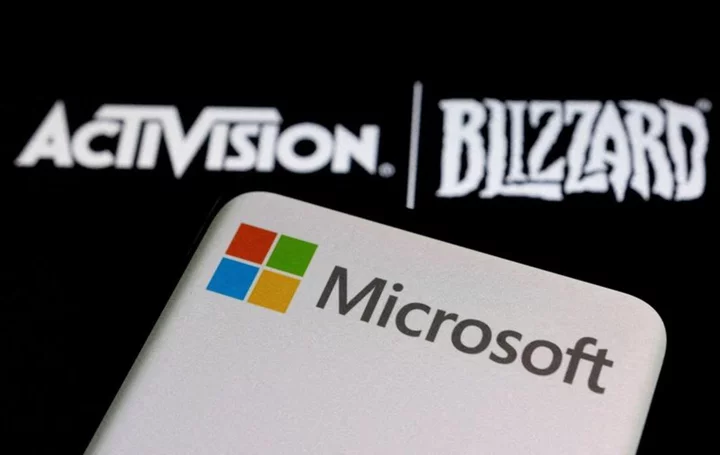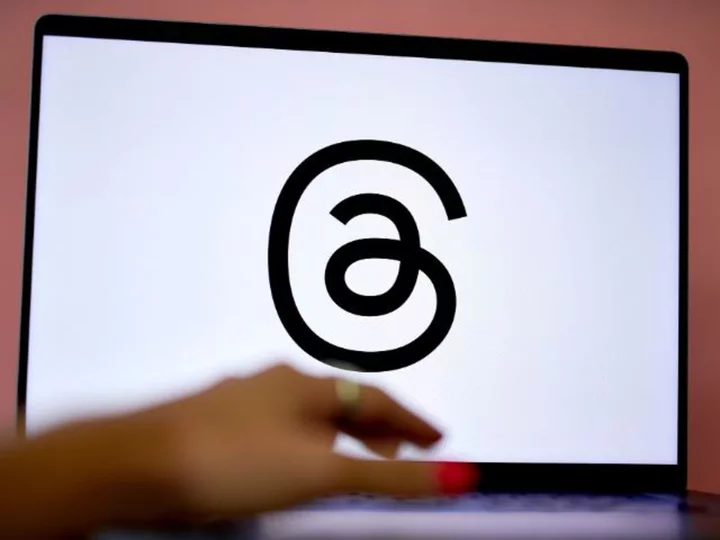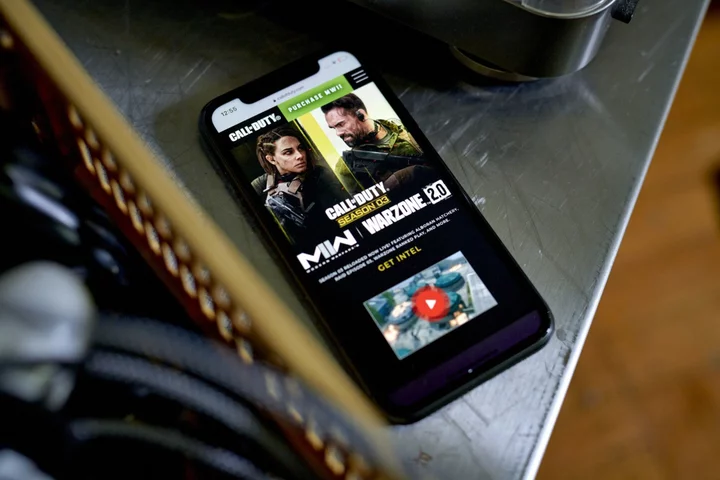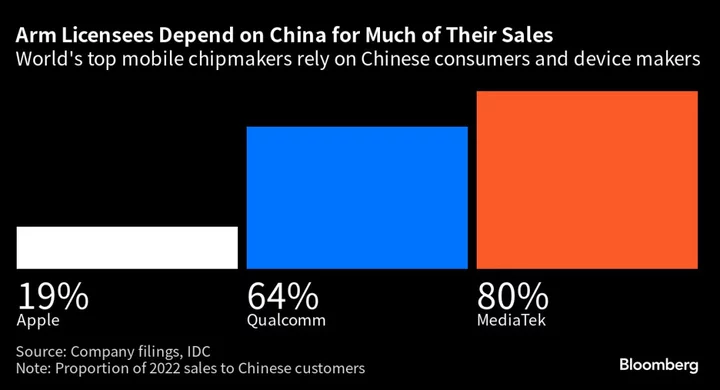
EU antitrust regulators to assess impact of Microsoft's UK Activision remedy
BRUSSELS EU antitrust regulators will examine whether Microsoft's proposal to sell its non-EU cloud streaming rights to Ubisoft
1970-01-01 08:00

Meta's Threads is finally available on desktop
Threads users, rejoice: the app is rolling out its highly anticipated web version Tuesday.
1970-01-01 08:00

Information watchdog issues warning to ‘text pests’
You are breaking the law if you use the phone numbers of customers to ask them out or proposition them, the information watchdog has warned as it vowed to crack down on “text pests”. Research from the Information Commissioner’s Office (ICO) found that around one in three 18 to 34-year-olds say they had been victims of the practice. When you give your phone number, email address or other contact details to a business, you have a right to expect it not to be used for non-business purposes. There may be, amongst some, an outdated notion that to use someone’s personal details given to you in a business context to ask them out is romantic or charming. Put quite simply, it is not – it is against the law Emily Keaney, ICO The research for the ICO by Savanta, which polled 2,289 UK adults between July 28-31, found that two thirds of people think the use of personal information to make romantic or sexual propositions is morally wrong, while only 5% think it is morally right. However, only 56% of people think it is illegal, compared with 9% who think it is legal. “People have the right to order a pizza, or give their email for a receipt, or have shopping delivered, without then being asked for sex or a date a little while later,” said Emily Keaney, a deputy commissioner at the ICO. “They have a right to know that when they hand over their personal information, that it will not then be used in ways that they would not be comfortable with. “But our research today shows a disturbingly high number of people, particularly young people, are falling prey to these text pests.” “There may be, amongst some, an outdated notion that to use someone’s personal details given to you in a business context to ask them out is romantic or charming. Put quite simply, it is not – it is against the law.” The ICO is now urging victims to come forward to allow it to get a better idea of how widespread the practice is and what impact it has on victims. It will also be getting in touch with some of the UK’s biggest customer-facing employers to make sure they understand their responsibilities and to learn about their safeguards. “If you are running a customer-facing business, you have a responsibility to protect the data of your customers, including from your employees misusing it,” Ms Keaney said. “We are writing to major businesses, including in food and parcel delivery, to remind them that there are no excuses, and there can be no looking the other way. “We’ve launched this call for evidence today because we want to hear directly from the public how this misuse of personal information has affected them. As the data regulator, we can then use this to inform our work protecting the public.”
1970-01-01 08:00

Toilet invented that is so slippy nothing can leave skid marks
A 3-D-printed toilet has been invented and the surface is so slippery that nothing can leave a mark on it. Cleaning the toilet has to be one of the grimmest household chores, but thanks to new material, you may never have to scrub a loo again. The toilet is the invention of Yike Li at Huazhong University of Science and Technology in Wuhan, China, who, alongside colleagues, invented a toilet whose surface is so slippery that nothing stains it and uses less water for each flush. The team created a prototype of the toilet around 10 times smaller than a real one. It was made using 3D printing technology, where particles of plastic and hydrophobic sand grains were fused together with lasers. The surface of the toilet was lubricated with a type of silicon oil that also penetrated the surface due to the complex structure of the material. The team tested the toilet with a variety of substances, including honey, yoghurt, muddy water as well as synthetic faeces. They found that none of the substances stuck to the toilet bowl. Amazingly, the toilet was just as slippery after having been rubbed with sandpaper over 1,000 times, which Li believes is due to the oil being able to penetrate the material of the toilet. Li believes the technology would be suited for settings in which a toilet gets a lot of use, such as on modes of transport and in public toilets. He explained: “The reduced flushing volume would result in less wasted water during transportation to the processing facilities, thereby saving transportation costs.” But, before that can happen, Li says the technology needs to be adapted for use on a full-sized toilet and also needs to be cheaper to make. You can see the toilet in action below courtesy of New Scientist. Nothing can stick to this 3D-printed slippery toilet youtu.be Sign up to our free Indy100 weekly newsletter Have your say in our news democracy. Click the upvote icon at the top of the page to help raise this article through the indy100 rankings.
1970-01-01 08:00

Microsoft gives ground on streaming in bid to remove UK block on Activision deal
Microsoft has made a major concession to UK authorities in a bid to remove the last remaining regulatory obstacle to its huge takeover of Activision Blizzard.
1970-01-01 08:00

Adyen Is Still Expensive After $23 Billion Meltdown
Even after a record slump that wiped out €21 billion ($23 billion) in value, some investors think Adyen
1970-01-01 08:00

Boost for Ubisoft as Microsoft Concedes Cloud Streaming Rights
Ubisoft Entertainment SA shares rose the most since February after Microsoft Corp. offered the French video game publisher
1970-01-01 08:00

Astronomers are expecting a message from aliens today that is 40 years in the making
Astronomers are hoping to receive a message from aliens after a 40-year wait for a reply comes to an end. On 15 August 1983, a pair of hopeful astronomers at Stanford University beamed a message into space via an antenna. They believe that 22 August 2023 is the earliest time they can expect to receive a reply. The experiment was the brain-child of professors Masaki Morimoto and Hisashi Hirabayashi, who, around 40 years ago, beamed 13 drawings in radio waves to a star named Altair, approximately 16.7 light-years away from Earth. The 13 drawings sent into space by Morimoto and Hirabayashi were designed to tell the story of human evolution and how human beings came to exist on Earth. Drawings depicted how humans evolved from microscopic creatures that eventually moved from water onto land. It also explained our solar system and what DNA is. It was the hope that if there was any intelligent life on planets close to the star, they would interpret the messages and hopefully send a reply. In anticipation of a reply, a team at The University of Hyogo in Japan will monitor for a reply using the Japan Aerospace Exploration Agency’s (JAXA) antenna. Led by Shinya Narusawa, the team will listen for around an hour for signs of unusual radio activity or signals that could suggest a reply. Narusawa explained: “A large number of exoplanets have been detected since the 1990s,” adding, “Altair may have a planet whose environment can sustain life.” Unfortunately, if a reply is received, it will be too late for Morimoto, one of the professors responsible for the original project, after he died in 2010. Dr Hirabayashi, the other pioneer, is currently a professor emeritus at JAXA. It is yet to be seen whether he will see his 40-year experiment gets the conclusion he was hoping for. Sign up to our free Indy100 weekly newsletter Have your say in our news democracy. Click the upvote icon at the top of the page to help raise this article through the indy100 rankings.
1970-01-01 08:00

Facebook owner Meta asks Norway court to halt privacy fine
By Gwladys Fouche OSLO (Reuters) -Meta Platforms on Tuesday asked a court in Norway to stop a fine that the
1970-01-01 08:00

Microsoft, Activision Deal Back in Play as UK Reopens Probe
Microsoft Corp.’s $69 billion Activision Blizzard Inc. acquisition got a new chance at winning approval from UK regulators
1970-01-01 08:00

Microsoft Concedes Activision Cloud Streaming Rights to Ubisoft
Microsoft Corp. said it will give Ubisoft Entertainment SA the cloud streaming rights for all of Activision Blizzard
1970-01-01 08:00

Arm Needed 3,500 Words to Detail Its Risks in China Before IPO
As it seeks to pull off what could the largest initial public offering of the year, Arm Holdings
1970-01-01 08:00
